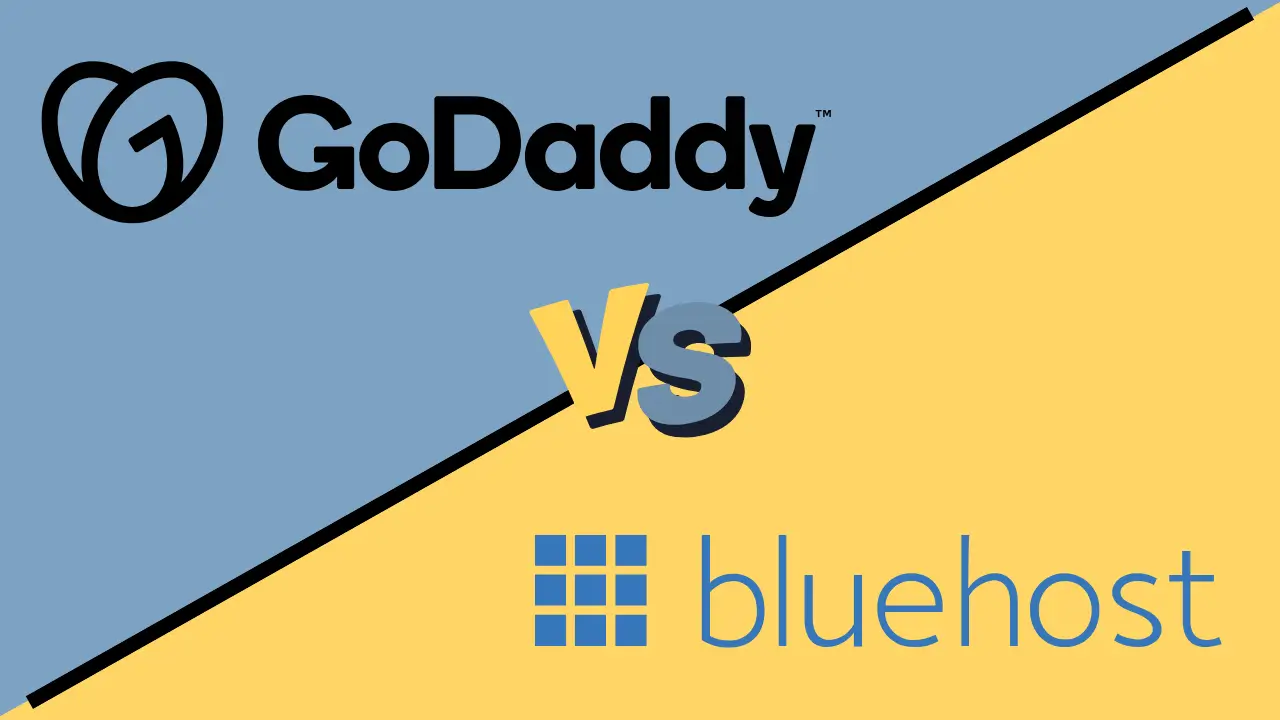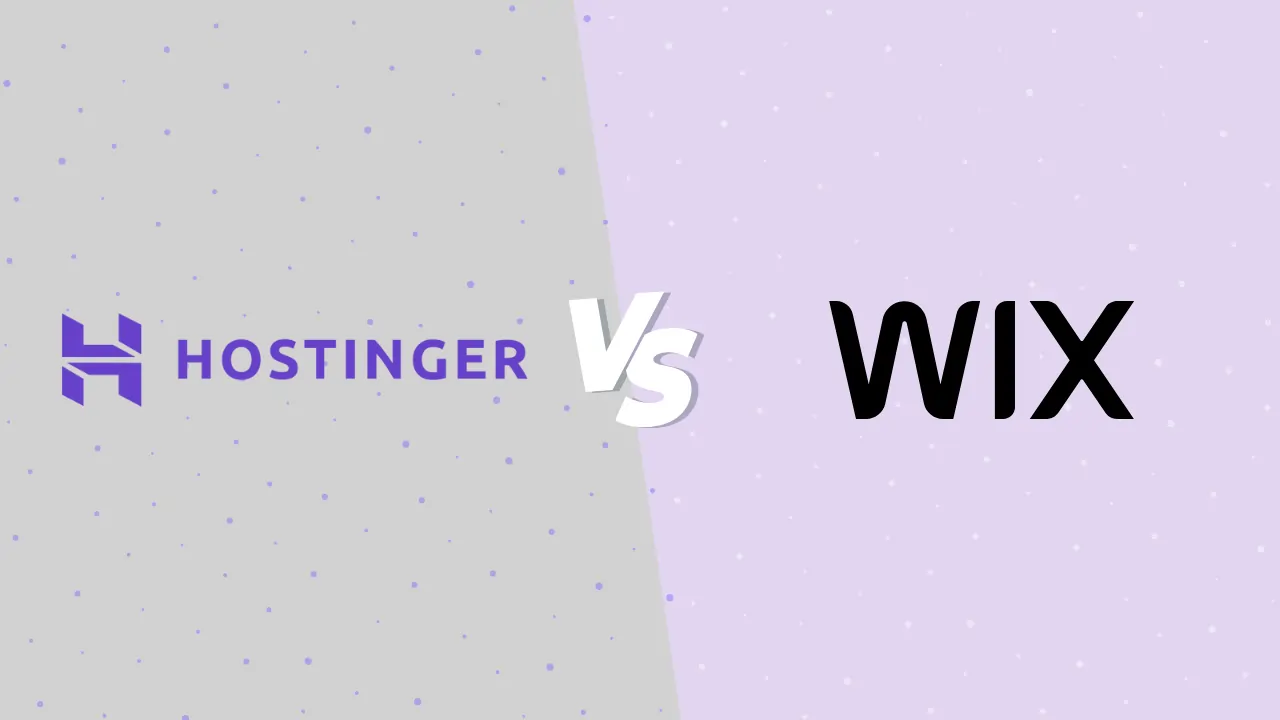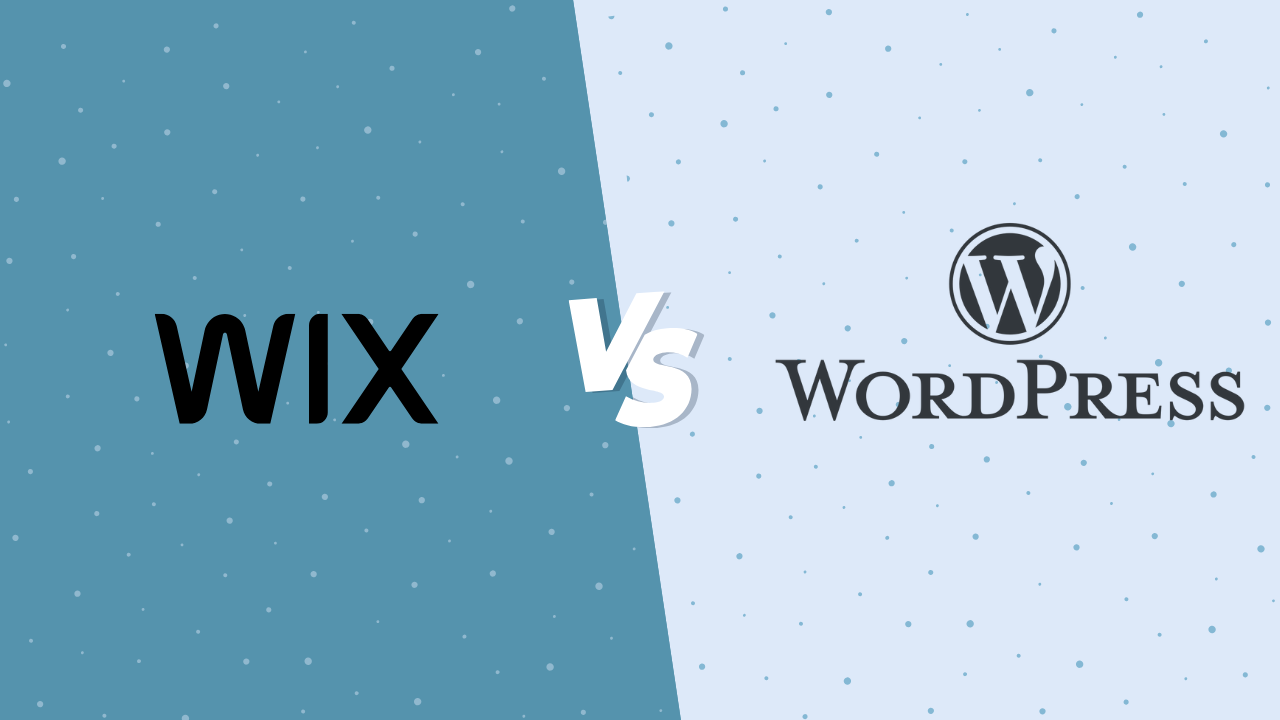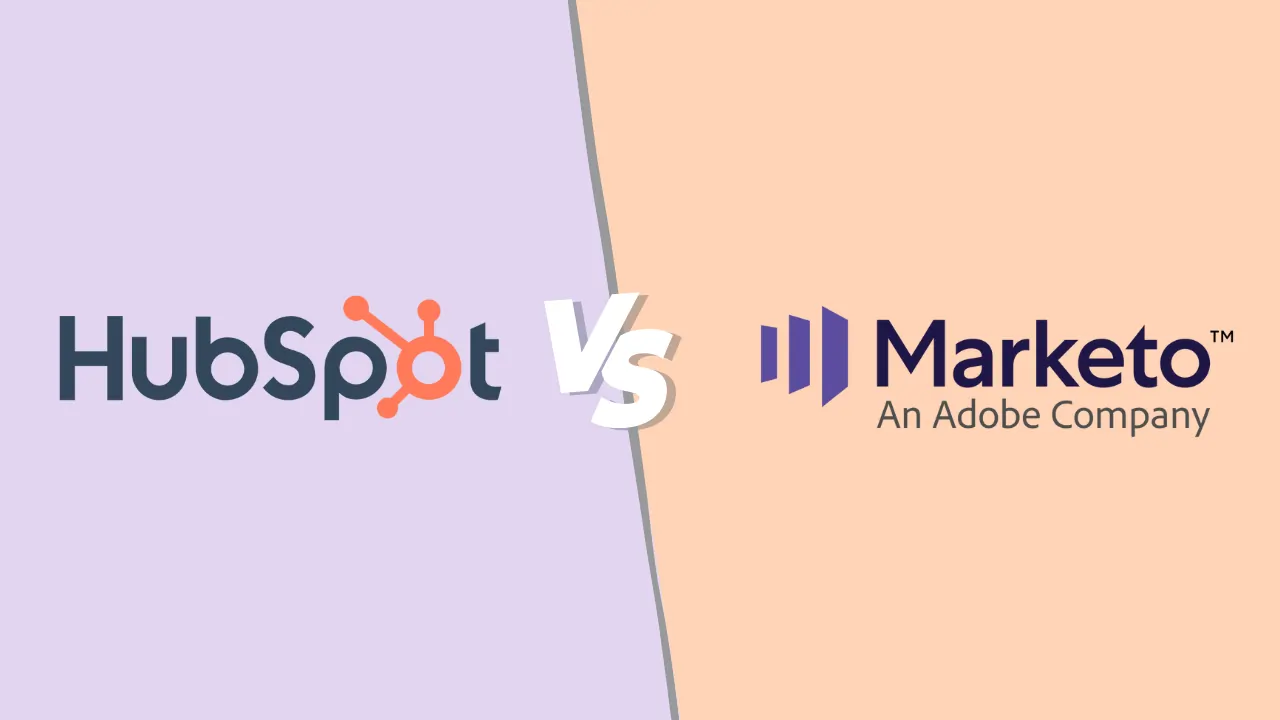Bluehost vs. GoDaddy (2026): Which Hosting Service Is Right for You?

So, you’re looking to get a website online and keep hearing Bluehost and GoDaddy mentioned. It makes sense – they’re like the Coke and Pepsi of the web hosting world for beginners and small businesses. But figuring out the actual difference between Bluehost and GoDaddy can feel like wading through confusing tech talk.
Honestly, choosing between them can feel like picking between two slightly different flavors of vanilla ice cream sometimes, but there are key differences in how they operate, what they focus on, and (most importantly!) how much they’ll really cost you long-term. Understanding the pricing and features of Bluehost vs. GoDaddy is crucial.
If you are looking for a quick answer, here is the reality: GoDaddy is the “famous” powerhouse for domains and simplicity, while Bluehost is the polished, 360-degree solution for WordPress users.
But for an SMB, the devil is in the details. A slight difference in renewal price, backup frequency, or storage limits can impact your bottom line. This guide delves into the integrations, hidden costs, and performance metrics that marketing pages often conceal.
Think of it like this:
Bluehost: Feels like it’s really holding your hand, especially if you’re using WordPress. They’re officially recommended by WordPress.org, and a lot of their stuff is geared towards making that experience super smooth for beginners. They aim for simplicity and WordPress focus. 🤝
Bluehost Pros and Cons Breakdown
| Pros | Cons |
| WordPress Optimized: Officially recommended by WP.org. | Backups: Automated backups are only weekly on the basic plan. |
| User Friendly: Excellent onboarding wizard for beginners. | Storage: Lower storage limits (10GB) on entry plans. |
| Cost: Lower introductory pricing ($2.99/mo). | Upsells: Dashboard can be heavy on suggesting paid add-ons. |
| Security: Free SSL included for the life of the plan. | Migration: Professional migration (non-WP) costs extra. |
GoDaddy: Is more like a giant superstore for all things online business. Hosting is just one aisle! They’re huge in domain names, offer website builders, email marketing, bookkeeping – you name it. They aim to be a one-stop shop with broad appeal.
Pros and Cons Breakdown
| Pros | Cons |
| Storage: Generous 25GB SSD on the base plan. | Price: Higher starting price ($5.99/mo). |
| Backups: Daily automated backups included. | SSL Costs: Free SSL often limited to the first year only. |
| Simplicity: One-stop-shop for domains, email, and web. | Restores: Charging a fee to restore backups on some lower plans. |
| Support: Excellent phone support infrastructure. | Email: Email is free for only 3 months, then paid. |
So, which one should you trust with your shiny new website? Let’s break down Bluehost vs GoDaddy in plain English, looking at what really matters for someone like you trying to get online without pulling their hair out.
Key Takeaways: The Executive Summary
Before we dive into the technical details, here is the high-level breakdown for decision-makers:
- Best for WordPress: Bluehost. Their specific “WonderSuite” onboarding and WordPress.org recommendation make them the leader here.
- Best for Simplicity & Domains: GoDaddy. If you want to buy a domain and attach a simple site builder in five minutes, they are unmatched.
- Value for Money: Bluehost generally wins on the first term with lower starting prices ($2.99/mo) compared to GoDaddy ($5.99/mo).
- Storage & Backups: GoDaddy offers more storage on base plans (25GB vs 10GB) and daily backups, whereas Bluehost restricts backups to weekly on lower tiers.
- Community & Learning: Both offer massive knowledge bases, YouTube tutorials, and community forums, ensuring you are never truly stuck.

Basic
Pros
- Deep integration with WordPress
- Inexpensive to get started
- Round the clock customer support
Cons
- It’s not as flexible as some of the popular site builders
- The eCommerce store is lacking some advanced functionality

Economy
Pros
- Free SSL certificate when purchasing a hosting plan
- Free domain is also included with hosting plans
- Unlimited storage and unmetered bandwidth on most plans
Cons
- More expensive than comparable web hosting services
- Many instances of the hosting service being slow
Brand Overview: The “Famous” vs. The “Specialist”
When you ask non-tech people about websites, they usually mention GoDaddy. They have built a brand synonymous with getting online. For SMBs, GoDaddy acts as a digital supermarket. You can buy your domain, rent hosting, get Microsoft 365 email, and hire a marketing expert all from one dashboard. It is straightforward and efficient.
Bluehost, on the other hand, positions itself as a partner in your creation process. They are less about “transactional” domain buying and more about “building.” Their recent updates have introduced a website builder assistant that guides you through WordPress creation, turning a complex CMS into a manageable, 360-degree solution for business owners.
Detailed Feature Comparison
To see exactly what you are paying for, let’s look at the hard data comparing their entry-level options.
| Feature | Bluehost (Basic Plan) | GoDaddy (Web Hosting Economy) |
| Introductory Price | $2.99/mo | $5.99/mo |
| Storage Space | 10 GB SSD | 25 GB SSD |
| Free Domain | Yes (1st Year) | Yes (1st Year) |
| SSL Certificate | Free (1st Year) | Free (1st Year only) |
| Backups | Weekly (Automated) | Daily (Automated) |
| Email Accounts | Free trial (Google Workspace) | Free trial (Microsoft 365) |
| Uptime Guarantee | 99.9% | 99.9% |
| Migration | Free WordPress Migration | Free Automated Tool |
| Control Panel | Custom Dashboard + cPanel | Custom Dashboard + cPanel |
Data reflection: While Bluehost is cheaper to start, GoDaddy provides more raw storage space and more frequent backups, which is critical if you update your site daily.
Bluehost vs. GoDaddy Quick Overview
| Feature | Bluehost | GoDaddy |
| Best For | WordPress sites, bloggers, growing businesses | Small businesses, domain-focused users, fast launch |
| Hosting Speed & Uptime | Optimized for WordPress; fast performance | Strong global presence; reliable for general sites |
| Website Builder | WordPress + Bluehost Website Builder | GoDaddy AI Website Builder |
| Website Hosting Price Comparison | Affordable; includes free domain, SSL, email | Slightly pricier; paid email (via Microsoft 365) |
| WordPress Integration | Official WordPress.org recommendation | Decent but less specialized |
| Email Accounts | Free with hosting | Paid separately |
| E-commerce Capabilities | WooCommerce integration (flexible, scalable) | Simple, fast-to-launch online store tools |
| Customer Support | 24/7 chat/phone, WordPress experts | 24/7 chat/phone, broad business expertise |
WordPress hosting: Bluehost’s strong suit?
Since WordPress powers over 40% of the web, how do they handle it?
- Bluehost: This is arguably their biggest selling point. They are officially recommended by WordPress.org. Their onboarding process seamlessly installs WordPress. Plans include features like automatic WordPress updates, staging environments (on higher tiers), and optimized performance. Their support staff usually have decent WordPress knowledge.
- GoDaddy: Also offers easy one-click WordPress installation and managed WordPress hosting plans. These plans include features like daily backups, malware scanning (on higher tiers), and performance optimizations. It’s a solid offering, but they don’t have the same official endorsement or quite the same brand focus on WordPress as Bluehost.
Bottom line: If your primary goal is a WordPress website, Bluehost often feels more tailored and integrated, plus the official recommendation carries weight. GoDaddy’s WordPress hosting is perfectly capable, though.
Building without code (website builders)
What if you don’t want to use WordPress?
- Bluehost: Offers its own Website Builder (based on WordPress initially, now more distinct). It’s a drag-and-drop tool aimed at beginners. Reviews suggest it’s decent but maybe less feature-rich than some dedicated builders.
- GoDaddy: Has a very popular standalone GoDaddy Website Builder. It’s known for being extremely easy to use, template-driven, and includes integrated marketing tools. It’s a separate product line from their hosting but often bundled or cross-promoted.
Bottom line: GoDaddy’s standalone Website Builder is arguably more established and feature-rich than Bluehost’s offering if you specifically want an all-in-one builder solution instead of traditional hosting + WordPress/CMS.
Getting help when things go wrong (customer support)
This is crucial, especially for beginners. Sadly, experiences vary wildly for both.
- Bluehost: Offers 24/7 support via phone and live chat. Historically, support quality has received mixed reviews – sometimes helpful, sometimes slow or requiring escalations. They have a large knowledge base.
- GoDaddy: Also offers 24/7 support, primarily via phone and live chat. They are notorious for upselling during support calls. Like Bluehost, reviews are mixed; some find them helpful, others frustrating. They also have extensive help articles.
Bottom line: Don’t expect life-changing support from either on basic plans. It’s often adequate for simple issues but can be hit-or-miss for complex problems. GoDaddy’s tendency to upsell during support interactions is a common complaint. Be prepared to use their knowledge bases and online forums.
Related Articles
User Interface (UI) Experience: What It’s Like to Manage a Site on Bluehost vs. GoDaddy
The user interface (UI) is what you interact with daily: the dashboard, menus, settings, and tools. A good UI makes managing your site easy and intuitive; a bad one can leave you frustrated.
Bluehost UI:
✅ Bluehost offers a clean but slightly technical dashboard, especially designed for WordPress users. You can manage domains, email, installs, performance, and security all in one panel — but it leans more toward users familiar with WordPress or those willing to learn.
✅ For beginners, the Bluehost Website Builder adds a friendly drag-and-drop interface that simplifies design without sacrificing WordPress flexibility.
GoDaddy UI:
✅ GoDaddy’s interface is designed for simplicity. Their dashboard guides you through setup, domain management, email, and marketing tools with beginner-friendly layouts and help prompts.
✅ The GoDaddy AI Website Builder takes this further by generating site designs automatically, minimizing manual setup.
Verdict:
-
For total beginners, GoDaddy’s UI is easier.
-
For WordPress users or those wanting more control, Bluehost’s UI offers deeper tools.
cPanel on Bluehost vs GoDaddy’s Custom Dashboard
Beyond the dashboard, the control panel is where you manage hosting-level settings: file access, databases, security, email accounts, DNS, and more.
Bluehost Control Panel:
✅ Bluehost uses cPanel, one of the most widely used and robust hosting control panels.
-
Advanced tools for file management, email, backups, and MySQL databases.
-
Familiar to many developers and freelancers.
-
Direct integration with WordPress tools.
GoDaddy Control Panel:
✅ GoDaddy provides its own custom dashboard plus cPanel access (on most hosting plans).
-
Their custom dashboard simplifies key tasks (domains, billing, marketing) for non-tech users.
-
cPanel is still available for advanced tasks but feels slightly hidden compared to Bluehost.
Verdict:
- For advanced users or developers, Bluehost’s pure cPanel approach is smoother.
- For beginners or business owners, GoDaddy’s custom dashboard simplifies daily tasks.
Security Features: How Bluehost and GoDaddy Protect Your Website
Security is non-negotiable. You need to protect your site from hacks, malware, data breaches, and downtime. Strong security tools should be built into your hosting, not just added later.
Bluehost Security:
✅ Free SSL certificates
✅ Daily backups (paid add-on)
✅ Malware scanning (SiteLock available)
✅ Advanced WordPress security tools (auto-updates, brute force protection)
✅ Spam protection for email
GoDaddy Security:
✅ Free SSL certificates
✅ Daily backups (paid add-on)
✅ Malware scanning and removal (paid add-on)
✅ DDoS protection included
✅ Optional Website Security plans with a firewall and CDN
Verdict:
Both hosts offer similar baseline protections, but GoDaddy includes stronger DDoS protections by default, while Bluehost leans into WordPress-specific security.
Integrations: Beyond Just WordPress
Most reviews stop at WordPress, but your business needs more than a CMS. You need to connect with CRMs, email marketing, and productivity tools.
Bluehost Integrations Bluehost leans heavily into the Google Ecosystem.
- Google Workspace: You can easily set up professional Gmail accounts directly through your Bluehost dashboard.
- WooCommerce: If you are selling products, Bluehost’s integration with WooCommerce is seamless. It often pre-installs the plugin and offers specific themes optimized for sales.
- Marketing Tools: They offer a “Creative Mail” integration for email marketing and have strong connections with plugins like Jetpack for site stats and security.
GoDaddy Integrations GoDaddy is a strong partner of Microsoft.
- Microsoft 365: Their email hosting is powered by Outlook. If your business already lives in Excel and Word, this integration is smoother than Bluehost’s.
- Over 125+ Apps: Their installer (Installatron) allows you to deploy applications like Joomla, Drupal, and Magento with a single click.
- GoDaddy Studio: A unique Canva-like integration that helps you design logos and social media posts directly within your account. This is a massive plus for SMBs without a graphic designer.
Performance: Speed and Reliability
For an SMB, speed is money. If your site takes 5 seconds to load, customers leave.
Bluehost Speed & Uptime Bluehost utilizes SSD storage across the board, which is faster than traditional HDD. In our testing and general user reports, Bluehost maintains a solid 99.98% uptime. Their servers are optimized for PHP (the language WordPress uses), meaning they can process dynamic requests quickly. However, because they are so popular, their shared servers can sometimes feel “crowded,” leading to occasional lags during peak US traffic hours.
GoDaddy Speed & Uptime GoDaddy also guarantees 99.9% uptime. Their global infrastructure is massive, which usually results in very stable connections. They have improved their “Time to First Byte” (TTFB) significantly in recent years by upgrading their hardware. For static sites or simple business portfolios, GoDaddy is often snappier right out of the box because their servers handle static HTML/CSS files very efficiently.
Website Hosting Price Comparison: Real Costs, Not Just Advertised Prices
Many users compare plans only by monthly price, but the real cost comes from what’s included (or not).
| Feature | Bluehost | GoDaddy |
| Domain (1st year) | ✅ Included | ✅ Included |
| SSL Certificate | ✅ Included free | ✅ Included free |
| Email Accounts | ✅ Free business emails | ❌ Paid add-on (via Microsoft 365) |
| Backups | ❌ Paid add-on or manual setup | ❌ Paid add-on or manual setup |
| Pricing (shared hosting) | ~$2.95–$5.45/month (promo rates) | ~$5.99–$12.99/month (promo rates) |
The $$$ talk: Pricing, renewals, and hidden costs (read this carefully!)
This is where many users get frustrated. Both Bluehost and GoDaddy lure you in with super-low introductory prices that require you to sign up for 1, 2, or even 3 years upfront.
- Introductory price: You might see ads for $2.95/month or similar. This price ONLY applies to your first term, paid in full upfront (e.g., $2.95 x 36 months = $106.20).
- Renewal price: When that first term ends, the price jumps dramatically to the “regular” rate, which can be 3x to 5x higher (e.g., that $2.95/mo plan might renew at $10.99/mo or more). This catches many people by surprise.
- Add-ons & upsells: During signup, both will try to sell you numerous add-ons: enhanced security, backups, SEO tools, email upgrades, etc. Be careful what you select, as these add to the cost.
- Domain renewal: The “free” domain for the first year renews at their standard rate (often $15-$20+/year) after that.
- SSL & email renewals (GoDaddy specific): As mentioned, GoDaddy often charges significantly for SSL certificate and Microsoft 365 email renewals after the first year, adding substantial hidden costs.
Bluehost pricing structure (simplified shared hosting example):
- Basic: Cheapest, 1 website, limited storage (~$2.95 intro -> ~$10.99 renewal).
- Choice Plus: Good value, multiple websites, more features, includes backups & domain privacy for the first term (~$5.45 intro -> ~$19.99 renewal). Watch out: those extras often become paid add-ons upon renewal!
- Pro: Top tier, more resources, dedicated IP (~$13.95 intro -> ~$28.99 renewal).
GoDaddy pricing structure (simplified shared hosting example):
- Economy/Starter: Cheapest, 1 website, basic resources (~$5.99 intro -> ~$9.99 renewal).
- Deluxe: Multiple websites (~$7.99 intro -> ~$12.99 renewal).
- Ultimate: More power, free premium DNS (~$12.99 intro -> ~$19.99 renewal).
- (Remember to add potential SSL and Email renewal costs!)
Bottom line: Budget for the renewal price, not the intro price! Read the terms carefully. Bluehost’s free SSL renewal is a significant advantage over GoDaddy’s typical model. Factor in GoDaddy’s email costs. Both heavily upsell add-ons.
Growing pains (scalability)
What happens when your site gets popular?
- Bluehost: Offers easy upgrade paths from shared hosting to VPS (Virtual Private Server) and Dedicated Servers for more power and resources.
- GoDaddy: Also offers a full range of upgrades: shared, VPS, and Dedicated Servers.
Bottom line: Both provide standard upgrade paths. If you anticipate massive growth, neither shared plan is ideal long-term, but both offer the necessary next steps.
E-commerce Support: Choosing Between Bluehost and GoDaddy for Online Stores
If you plan to sell products or services online, your hosting must support secure payments, product management, and scalability.
Bluehost:
✅ WooCommerce-ready, with:
-
Dozens of payment gateway integrations
-
Extensive plugin and theme ecosystem
-
Scalable from small shops to large catalogs
GoDaddy:
✅ Simple online store builder, with:
-
Product and service catalogs
-
Integrated payments and shipping tools
-
Best for small, local sellers
✅ Bluehost: WooCommerce integration, great for scalable stores.
✅ GoDaddy: Simple store builder, fast setup, best for small shops.
Customer Support and Service: What Help Can You Expect from Bluehost and GoDaddy?
This is where both providers shine compared to smaller competitors.
Community & Tutorials Both Bluehost and GoDaddy have cultivated massive communities.
- YouTube: You can find thousands of high-quality tutorials for both platforms. Whether you are trying to configure DNS settings or install a theme, someone has made a video about it.
- Forums: There are huge Reddit threads and dedicated forums where users help each other. You are never alone.
Direct Support Channels
- GoDaddy: Famous for their phone support. You can call them and speak to a human. This is reassuring for SMB owners who panic when their site goes down. They are also proactive about calling you to “check in” (which is often a sales call, but helpful nonetheless).
- Bluehost: Offers 24/7 phone and chat support. Their chat agents are generally very technical and can help with specific WordPress errors that might stump a general GoDaddy agent.
| Feature | Bluehost | GoDaddy |
| 24/7 Support | ✅ Live chat, phone, email | ✅ Live chat, phone, email |
| WordPress Experts | ✅ Available | ❌ Less specialized |
| Knowledge Base | ✅ Comprehensive WP + hosting guides | ✅ Strong domain + general guides |
Verdict:
-
For WordPress-specific help, Bluehost is superior.
-
For broader business services and domains, GoDaddy covers more ground.
The Renewal Reality: Auto-Renewal for SMBs
A crucial feature for SMBs is Auto-Renewal.
- Why it matters: As a business owner, the last thing you want is to lose your domain name because you forgot to update your credit card or missed an email.
- The Experience: Both providers enable this by default. It is a safety net. You can turn it off in the billing section if you prefer manual control, but for most SMBs, this “set and forget” feature ensures your brand remains yours.
- The Cost: Be aware that renewal prices are higher than introductory prices. That $2.99 plan might renew at $9.99. This is standard industry practice, but it is important to budget for it.
So, Bluehost or GoDaddy? Which should YOU pick?
| Factor | Winner / Lean | Why? |
|
WordPress hosting |
Bluehost |
Official recommendation, seamless setup, focused features. |
|
Ease of use (overall) |
Tie / Bluehost |
Both are easy; Bluehost’s initial WP setup might be slightly smoother. |
|
Features (value) |
Bluehost |
Similar core features, but Bluehost’s included auto-renewing SSL is a win. |
|
Pricing (intro) |
Tie |
Both offer very low initial prices (requiring long terms). |
|
Pricing (renewal) |
Bluehost (Slightly) |
Usually slightly better value due to included SSL/basic email, but both are high. |
|
Hidden costs |
Bluehost (Fewer) |
GoDaddy’s typical SSL/Email renewal fees are significant hidden costs. |
|
Website builder |
GoDaddy |
Their standalone builder is more established and feature-rich. |
|
Domain registration |
GoDaddy |
Their core business, huge market share, often better domain management tools. |
|
Customer support |
Tie (mediocre) |
Both have mixed reviews; GoDaddy known for upselling. |
|
Performance (shared) |
Tie |
Generally comparable entry-level performance. |
Okay, let’s cut to the chase based on everyday needs:
- Choose Bluehost if:
- ✅ Your main goal is to build a WordPress website.
- ✅ You’re a beginner looking for a guided setup experience.
- ✅ You want slightly more predictable long-term costs (mainly due to the free auto-renewing SSL).
- ✅ You prefer the standard cPanel interface (even under a custom dashboard).
- Choose GoDaddy if:
- ✅ You want to manage your domain and hosting in one well-integrated place.
- ✅ You’re interested in using their standalone Website Builder instead of WordPress/hosting.
- ✅ You plan to use Microsoft 365 email and don’t mind the extra cost after the first year.
- ✅ You’re careful about reading contracts and are prepared to negotiate or watch out for SSL/email renewal costs.
The honest truth: For many beginners looking for simple WordPress hosting, Bluehost often presents slightly better long-term value due to fewer “gotchas” on essential renewals like SSL. However, neither is a high-performance host on their cheapest plans, and both rely on steep renewal pricing. Always compare the total cost over 2-3 years, including renewals and necessary add-ons!
Alternatives to Bluehost and GoDaddy
If you’re shopping for a Bluehost alternative or something beyond GoDaddy, consider:
 Rapid speed servers
Rapid speed servers  No max. on domains & websites
No max. on domains & websites  Fast, scalable hosting for any website
Fast, scalable hosting for any website  Free domain for 1 year
Free domain for 1 year  99.99% uptime guarantee
99.99% uptime guarantee  Free SSL certificate
Free SSL certificate  24/7 customer support to keep you online
24/7 customer support to keep you online  Hosting with 99.9% uptime guaranteed
Hosting with 99.9% uptime guaranteed FAQ
Is Bluehost good for beginners?
Yes, it is excellent for beginners who want to use WordPress. Their “WonderSuite” onboarding process removes the technical jargon and guides you step-by-step through creating your first page.
Can I transfer my domain from GoDaddy to Bluehost?
Yes. You can unlock your domain in GoDaddy and request a transfer code. You can then input this code into Bluehost to move the domain. Alternatively, you can leave the domain at GoDaddy and just point the DNS to Bluehost servers.
Does GoDaddy charge for SSL certificates?
On many entry-level plans, GoDaddy provides a free SSL for the first year, but charges for it upon renewal. Bluehost typically includes the SSL for free for the life of the hosting plan.
Which host is better for email?
If you want professional email (like info@yourdomain.com), GoDaddy is better if you prefer Microsoft Outlook/365. Bluehost is better if you prefer Google Workspace (Gmail).
Do they offer money-back guarantees?
Yes, both Bluehost and GoDaddy offer a standard 30-day money-back guarantee on their hosting plans. Note that domain registration fees are usually non-refundable.













